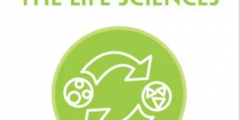Cancer, metaphors and Bond villains
March 3, 2023
There are metaphors that utterly change how we see the world and there are metaphors that change how we see microscopic bits of it. There are metaphors that are constitutive of theories in philosophy and science and there are more ephemeral ones that provide glimpses of new phenomena. I am just reading a book by …
Can metaphors hinder scientific progress?
February 24, 2023
This is a guest post by Jack Morgan Jones. He is a postgraduate researcher at the University of Manchester’s Philosophy Department with an interest in truth and practical rationality, as well as agency and constructivism. *** It’s readily acknowledged that metaphors can help an educated public better understand a scientist’s technical work. But questioning the …
Gene drive communication: On bombs and bullets
January 20, 2023
In a recent article for Scientific American, the zoologist and author of a recent book on the history of genetic engineering, Matthew Cobb, lays out the pros and cons of ‘gene drive’. Gene drive is a new genetic technology that could be used to wipe out whole species of insects that transmit, for example, malaria. …
Artificial intelligence, dark matter and common sense
January 13, 2023
In my last post I wrote about a new type of deep learning network, the chatbot ChatGPT, which has stirred up a lot of debate, including between me and my sister. We were skyping and I mentioned the blog post and she said: “Oh, I have just read something in the New York Times that …
Scientists do metaphor
November 18, 2022
I was idly browsing my Twitter timeline recently (probably for the last time), when my eyes fell on some tweets by Buzz Baum, a cell biologist, saying that he had spoken about metaphor on a BBC radio programme (oh, I thought!) which unfortunately had now been deleted from BBC Sounds (oh no, I thought). He …
Invasion as a metaphor
November 4, 2022
On 31 of October Suella Braverman, Home Secretary of the United Kingdom, said, according to Hansard, the official report of all Parliamentary debates: “The British people deserve to know which party is serious about stopping the invasion on our southern coast, and which party is not.” ‘Invasion’ is generally defined as the “action of invading …
Resisting metaphors: The case of trickle-down economics
October 3, 2022
I have recently been corresponding with Ahmed Abdel-Raheem, a metaphor researcher who is developing a theory of metaphor resistance. Ahmed is looking at how producers of metaphors deal with metaphor failure in various ways (denying it was a metaphor, reinterpreting it etc.) and how metaphor audiences or viewers can resist metaphors, be they verbal or …
Understanding metaphors in the life sciences – a book review
April 29, 2022
I recently wrote a review of a fascinating little book, Understanding Metaphors in the Life Sciences, by Andrew Reynolds. It appeared as part of the rather excellent series Understanding Life, published by Cambridge University Press and should be read in conjunction with another book in the series by Kostas Kampourakis entitled Understanding Genes, which came …
Covid metaphors: Around the world in eight articles
April 8, 2022
When the Covid-19 pandemic began in 2020, Martin Döring (Institute of Geography, University of Hamburg) and I (Institute for Science and Society, University of Nottingham) began to assemble and then edit articles dealing with its metaphorical framing around the world (not the whole world, of course!). Covid-19 killed millions of people and caused huge distress …
Omicron: From Frankenstein to Hurricane
April 1, 2022
When threatened by anything from AIDs to zoonoses, we unconsciously use war metaphors and natural force metaphors (storms, tsunamis, fires, avalanches, volcanoes etc.). We can also use more consciously created metaphors, such as Frankenstein (created in the 1990s). Such old and new metaphors help us understand and mitigate old and new risks and threats. War …
Subscribe by email
About this blog
This blog promotes discussion of topics related to the research programme 'Making Science Public: Challenges and Opportunities'. Our purpose is not to 'make science public'. Instead, we want to study the opportunities that have emerged for science to be more openly practiced and debated, but also the challenges posed by making science public or by promoting the making public of science as a solution to a variety of problems in society and in politics.
This blog will report on these and other issues related to the Leverhulme funded research programme: Making Science Public: Challenges and Opportunities
Useful links
Recent Posts
 MSP bookmarks
MSP bookmarks
- Twitter May 8, 2017
- Social innovations in Europe #RRI November 3, 2015
- Harvey Graff, the undisciplinarian September 20, 2015
- Replacing Pesticides With Genetics August 31, 2015
- Addressing hazardous chemicals in the circular economy August 25, 2015
Categories
- antibiotics
- anticipatory governance
- artifical intelligence
- big data
- biotechnology
- citizen science
- Climate Change
- Climate Politics
- co-production
- coronavirus
- Creationism
- Definition of Science
- designer babies
- disease
- disease
- engineering
- epigenetics
- Food Security
- Food sovereignty
- gene drive
- genomics
- GM Food
- GMOs
- history of science
- Hype
- images and visualisations
- imaginaries
- Immigration
- Impact
- infectious diseases
- innovation
- interdisciplinarity
- Knowledge Society
- Language
- Markets
- Metaphors
- microbiome
- neoliberalism
- Neuroscience
- open access
- Personal Reflection
- Politics
- Public education
- public engagement with science
- public needs
- public participation
- public policy
- public service
- publics
- regulatory science
- Religion
- Republican Party
- research impact
- responsible innovation
- responsive research
- Richard Dawkins
- risk
- Scepticism
- Science
- Science and Government
- science and politics
- Science and Songs
- science communication
- Science Communication
- Science Fiction
- Science Policy
- Social science
- sociology
- space
- space exploration
- synthetic biology
- transparency
- Trust
- Uncategorized
- Uncertainty
- visualisation
- wonder





![Hand-painted Kintsugi pottery bowl. Wikimedia Commons [Kintsugi, also known as kintsukuroi, is the Japanese art of repairing broken pottery by mending the areas of breakage with lacquer dusted or mixed with powdered gold, silver, or platinum]](https://blogs.nottingham.ac.uk/makingsciencepublic/files/2022/11/Hand_Pinted_Kintsugi_Pottery_Bowl-240x120.jpg)




